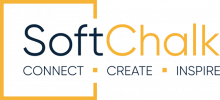 – Kennesaw State University
– Kennesaw State University
Across the country, community colleges and universities are grappling with the problem of textbook affordability for their students. In one US Government Accountability Office study, the annual average spend on textbooks is 26% of the cost of tuition at a public, four year university. Too frequently, students chose not to buy the textbook, which puts them at a major disadvantage for successful course completion.
For faculty, it can be equally frustrating—in some disciplines, the field changes so quickly the textbook can’t stay current, or requires constant updates. By the time the textbook is printed, it may already be out of date. Or in other cases, the textbook doesn’t change that much—perhaps one or two chapters need updating—but for students, the whole new book has to be purchased.
In recent years, there have been a variety of efforts to encourage the creation and use of OERs (Open Education Resources). These are learning materials that are produced and made available for free, typically under a Creative Commons licensing model. In 2014, the University System of Georgia (USG) developed the Affordable Learning Georgia (ALG) initiative which offered Textbook Transformation Grants to USG faculty. The objective: “to transform their use of textbooks and other learning materials into using lower cost options.” In effect, these grants offered faculty the opportunity to use OER in lieu of a traditional print textbook.
At Kennesaw State University (KSU), five colleagues in the College of Humanities and Social Sciences proposed to develop a free OER textbook for their technical communications program. The idea: to create an online textbook that anyone, anywhere could use at no cost to the student. It was this team’s thinking that with a free textbook, students could use the money they saved to take additional classes with lower overall debt. And having easy and free access to learning materials would also mean students are less likely to drop the class, which further reduces their debt load because they aren’t paying for classes they didn’t complete or failed.
The KSU team, led by Dr. Tamara Powell, Interim Executive Director of Technology Enhanced Learning, determined that if they could replace the textbook for two technical communication courses, it would impact as many as 525 students per year. The student savings per year was estimated at $55,611. They successfully applied for and received funding under the Georgia Textbook Transformation Grant.
The textbook they created, “Sexy Technical Writing,” is an interactive, online textbook that includes embedded videos, interactive activities, quizzes and tooltips. It was created using SoftChalk Cloud, an easy-to-use, online lesson authoring platform, designed for educators and instructional designers. Each chapter in the textbook is a SoftChalk lesson. The team created their own videos and also used content provided by experts in the field. In some cases, they used content from other authors, with permission, and remixed the content with their own original content.
Flexibility of the textbook materials is key. The team opted for short, topic-specific, online chapters. Because each chapter is an individual online ‘lesson,’ instructors can link to the entire text, or can pick and choose by linking to specific chapters of the text, reordering the content if needed. Additionally, faculty can deliver the textbook to students in multiple ways—by placing links in an LMS (learning management system) course, into a web-based syllabus, or even into an email. The textbook can also be printed by the student. Said Dr. Powell, “We’re so excited about giving our students exactly what we want them to have, at no cost to them.”
We’re so excited about giving our students exactly what we want them to have, at no cost to them.
The online textbook, published in the Summer of 2017, has been well-received by students. In an initial study to gather feedback, student opinion of the materials used in their course found 95% rated the materials as positive. They also measured learning outcomes comparing students using the new textbook with students from the previous semester who had used the old standard textbook. Their findings: students in their online course demonstrated some grade improvement (an increase in average grade from 74% to 78%). In their face-to-face course, the average grade dropped from 74% to 78%. Overall, there was a decrease in the number of students who dropped/failed/withdrew (6% compared to 16% the previous semester).
When asked about the rewards vs the effort, Dr. Powell admitted that the grant money they received was much less than what they might receive monetarily had they written a textbook for a publisher. But, she said, “the satisfaction level is incredibly high. We all just wanted to give our students something that we felt was valuable and we had control over. The transformation experience was exhilarating and inspiring as we achieved our dream of creating a resource for students that was under our control and reflected the way we wanted to teach.”
Sexy Technical Communication – Link to the textbook.
Team members:
- Dr. Tamara Powell, Interim Executive Director of Technology Enhanced Learning, Professor of English
- Ms. Tiffani Reardon, Instructional Designer for the College of Humanities and Social Sciences, Part-Time Instructor of Technical Communication and Instructional Design
- Dr. Cassandra Race, Part-Time Assistant Professor of Technical Communication
- Dr. Monique Logan, Lecturer of Technical Communication
- Dr. Jonathan Arnett, Assistant Professor of Technical Communication
